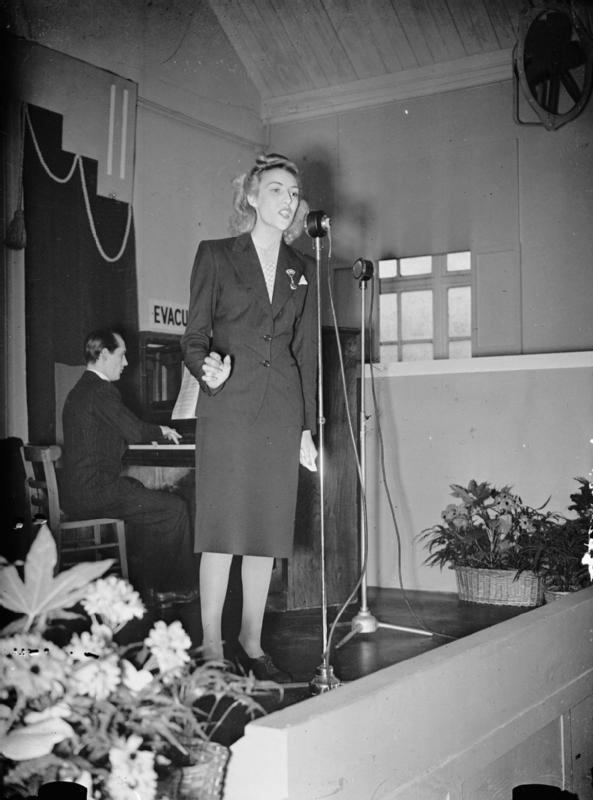Entertainment in Britain
During World War Two, entertainment in Britain was hugely important. The government recognised it importance in boosting morale and creating a sense of normality. Popular entertainment in wartime included board games, dancing and radio broadcasts.
The picture house was also a useful place to show information films instructing the population on how to conduct themselves during the war. “Miss Grant goes to the door” is one such example. The 1940 propaganda film showed audiences what to do in the event of a German invasion. It reminded people to lock away Ordnance Survey maps; knitted socks and mittens for the armed forces and how to recognise a German paratrooper.
Families with wireless listened to radio broadcasts, including comedy programmes. Radio became a good medium to build morale on the homefront, with shows such as ITMA (It’s That Man Again) becoming hugely popular. British comedian Tommy Handley starred in ITMA as the Minister of Aggravation and Mysteries at the Office of Twerps.

Gwen Stanley was a child during the war. Here she describes her delight at listening to ITMA on the radio:
“‘Itma’ was on radio and was another powerful weapon in raising morale and providing humour. Most of Britain tuned in on Thursday night at half past eight to hear the signature tune of ‘It’s that man again, yes that man again. Yes, that Mr Handley is here…’ I rather think Tommy Handley invented the catch phrase and whenever possible people said, ‘Can I do you now, sir?’ in imitation of Mrs Mop, who was in each weekly programme.
One of my favourite characters was Funf, who rang, presumably from Germany every week. His opening line was, ‘This is Funf speaking’ and was enough to send the family into shrieks of mirth. He was played by Jack Train, who also played Colonel Chinstrap, a supposedly army man and a heavy drinker. Again, his catchphrase, ‘I don’t mind if I do,’ was used by the public on every possible occasion.”
After a few years the show was forced to change its name to "It's That Sand Again" set in the town of Foaming-at-the-Mouth and Handley played the part of the town's mayor. Once the darker days were behind the government after 1941, the show changed back to its original name. ITMA ran through to 1949. Almost half the population of the population tuned into ITMA during the war, boosting the nation’s morale on a mass scale.
Sport was a huge source of entertainment for Brits, but it too was disrupted during the war. Initially all professional sport was suspended, but football grounds reopened in September and the football leagues were reorganised on a regional basis to cut down on traveling time. Crowds were restricted, with only 8,000 spectators allowed in some areas. Many clubs lost their key players as they were called up into the forces, and grounds were often requisitioned or damaged by bombing. However, spectators still flocked to fixtures in reformatted leagues or competitions.
Music was another essential element to wartime entertainment. Three of the most well-known singers were Gracie Fields, Vera Lynn and Anne Shelton.
See also: ENSA
MLA Citation/Reference
"Entertainment in Britain". HistoryLearning.com. 2026. Web.
